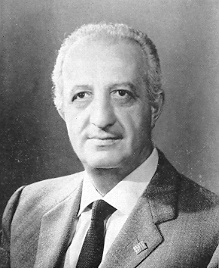|
Plagio
Plagio is an Italian term deriving from the Latin "plagium". The Italian criminal code defined it as "Whoever submits a person to his own power, in order to reduce her to a state of subjection, is punished with imprisonment for five to fifteen years". Such a crime has not been prosecuted in Italy since 1981. Annulment The crime of plagio had rarely been prosecuted in Italy, and only one person, Aldo Braibanti, was ever convicted after the Second World War, for his relations with a younger man he was accused of brainwashing into communism and homosexuality in 1964. It was later declared unconstitutional by the Constitutional Court with decision no. 96 of 8 June 1981. The court found the law to be so vague that it failed to meet the criteria set out in Article. 25 of the Constitution. Specifically, the substance of the crime was impossible to fully assess with logical-rational criteria, creating an intolerable risk of arbitrary prosecution and conviction. A few years after the declar ... [...More Info...] [...Related Items...] OR: [Wikipedia] [Google] [Baidu] |
Leonetto Amadei
Leonetto Amadei (Seravezza, 7 August 1911 – Marina di Pietrasanta, 10 November 1997) was an Italian lawyer and a politician. Amadei graduated from the University of Pisa. As a lawyer, he often took on cases defending the weak, the oppressed, and workers. In 1946 he was nominated by the Italian Socialist Party in the elections for the Constituent Assembly, and following his election chosen for the Constitutional Commission ''( :it:Commissione per la Costituzione)'', where he mainly worked on the elaboration of the first part of the Constitution of Italy. Subsequently Amadei was elected deputy in the district of Lucca, Livorno, Pisa and Massa Carrara, again for the Italian Socialist Party, and he also held the post of Secretary to the Ministry of Justice in the first Rumor Government. Amadei was re-elected several consecutive times for parliament until 1972, when he became a member of the Constitutional Court. Amadei was elected President of the same Court on 5 March 1979 and h ... [...More Info...] [...Related Items...] OR: [Wikipedia] [Google] [Baidu] |
Aldo Braibanti
Aldo Braibanti (Fiorenzuola d'Arda, September 17, 1922 – Castell'Arquato, April 6, 2014) was an Italian poet, essayist, screenwriter, playwright, director, and visual artist. He fought as a partisan in the Resistance, returning to his intellectual pursuits after the war, dedicating himself to visual arts, cinema, theater, and literature, as well to myrmecology and ecology. Biography Aldo Braibanti spent his childhood in Fiorenzuola d'Arda near Piacenza in Italy. His father was a local doctor and he often accompanied him to house calls in the province of Piacenza. Soon Aldo discovered the centrality of the natural world and developed a strong interest in ecology and environmental protection. He was fascinated by animal life and, in particular, the behavior of social insects: ants, bees, and termites. While growing up under Fascism, he enjoyed "an enlightened family firm in its opposition to any authoritarian and clerical impositions"; between the ages of seven and eight, he bega ... [...More Info...] [...Related Items...] OR: [Wikipedia] [Google] [Baidu] |
Mario Di Fiorino
Mario Di Fiorino (born 22 May 1953)Società Italiana di Psichiatria (2011)Corso "Urgenze e Degenze nel SPDC: Relatori". Retrieved 29 September 2013 . is an Italian psychiatrist and Director of Psychiatry at the Ospedale Versilia in Lido di Camaiore (LU), Italy. The author of numerous scientific papers and books, his main areas of research are related to mental manipulation, violence, and dissociative disorders. Life and career Di Fiorino was born in Forte dei Marmi and received his medical degree from the University of Pisa in 1978. He went on to qualify as a specialist in psychiatry in 1982 and child neuropsychiatry in 1986. Before taking up his post as Director of Psychiatry at the Ospedale Versilia in 2002, he served in the same capacity at the Ospedale Psichiatrico Giudiziario di Castiglione delle Stiviere (a hospital for the criminally insane) in Mantua and taught in the school of Clinical Criminology at the University of Modena. At the time he worked as a forensic psychiatri ... [...More Info...] [...Related Items...] OR: [Wikipedia] [Google] [Baidu] |
Plagium
Child abduction or child theft is the unauthorized removal of a minor (a child under the age of legal adulthood) from the custody of the child's natural parents or legally appointed guardians. The term ''child abduction'' includes two legal and social categories which differ by their perpetrating contexts: abduction by members of the child's family or abduction by strangers: * Parental child abduction is the unauthorized custody of a child by a family relative (usually one or both parents) without parental agreement and contrary to family law ruling, which may have removed the child from the care, access and contact of the other parent and family side. Occurring around parental separation or divorce, such parental or familial child abduction may include parental alienation, a form of child abuse seeking to disconnect a child from targeted parent and denigrated side of family. This is, by far, the most common form of child abduction. * Abduction or kidnapping by strangers ... [...More Info...] [...Related Items...] OR: [Wikipedia] [Google] [Baidu] |


